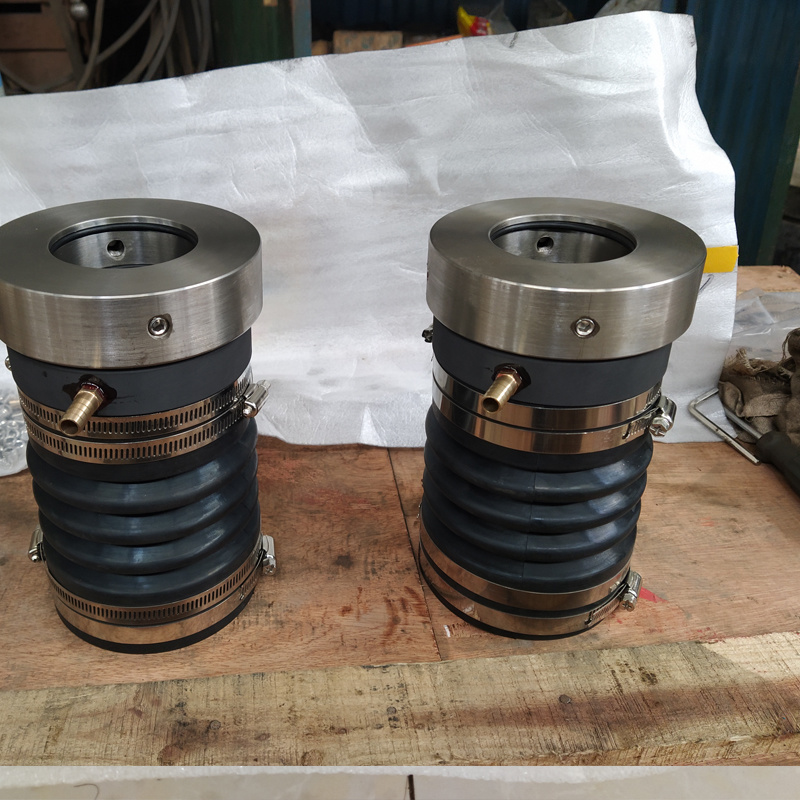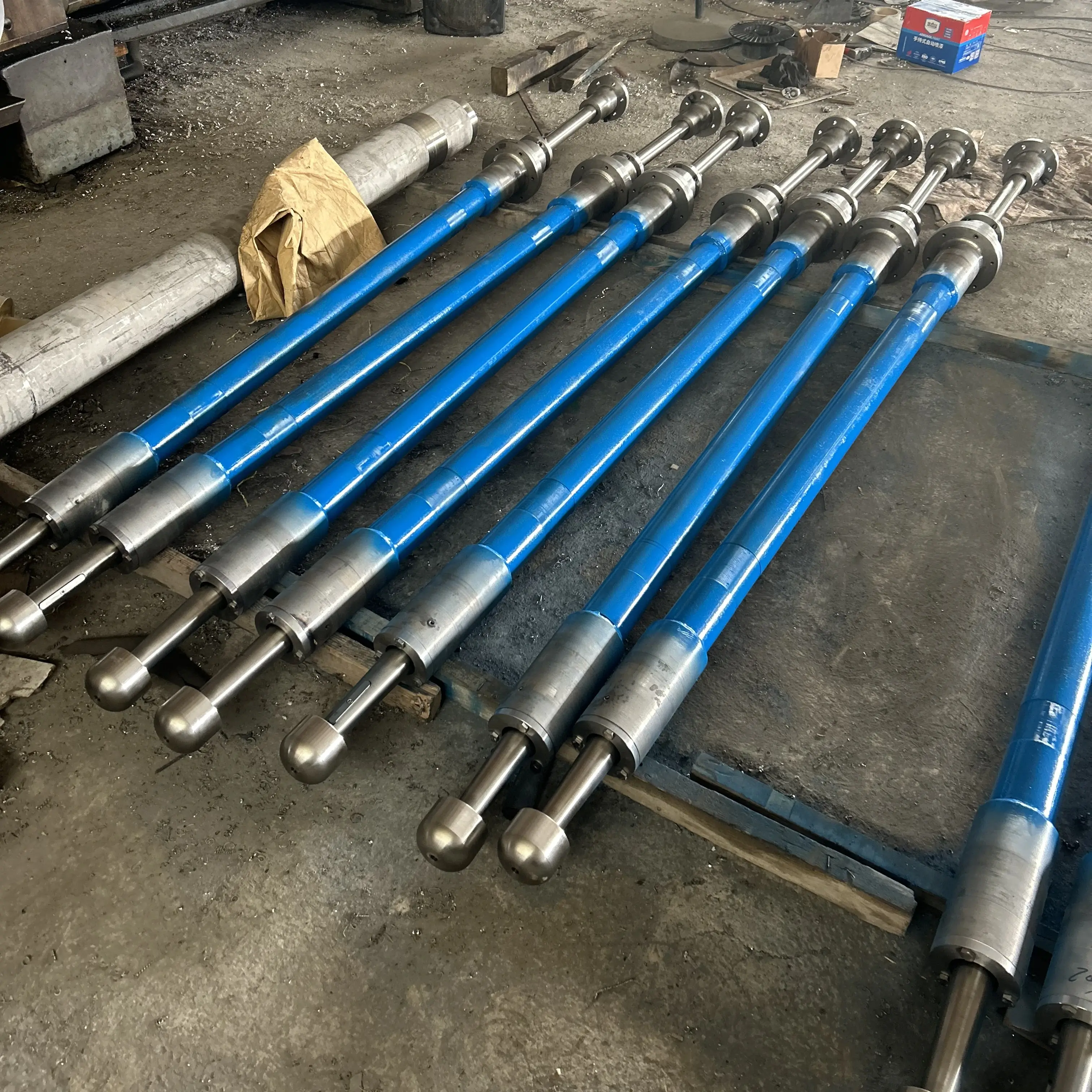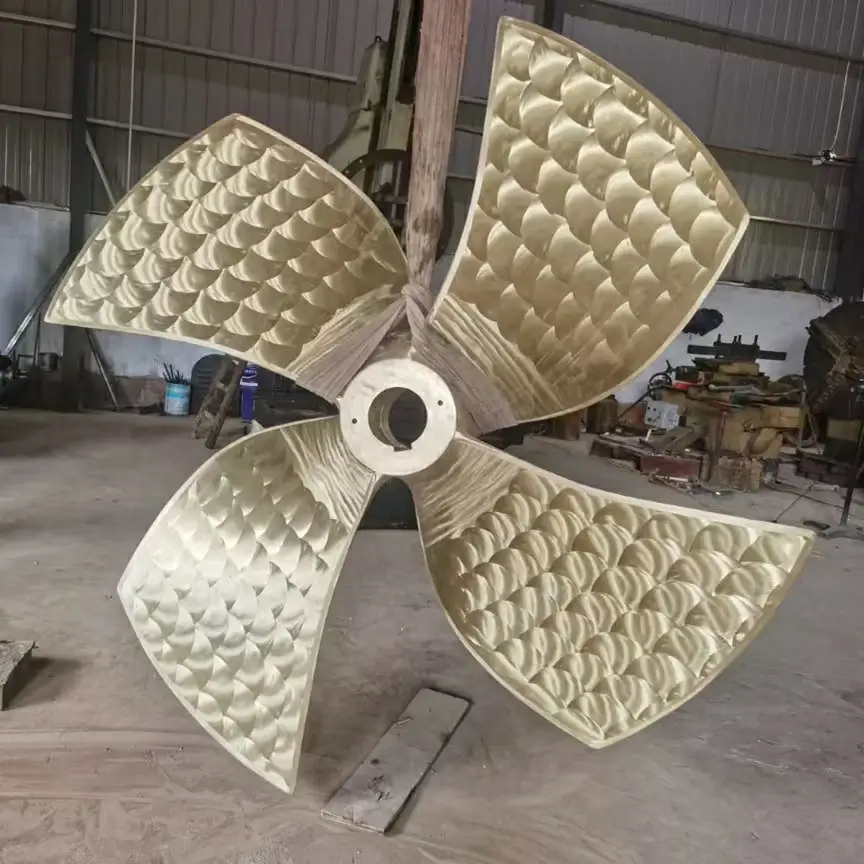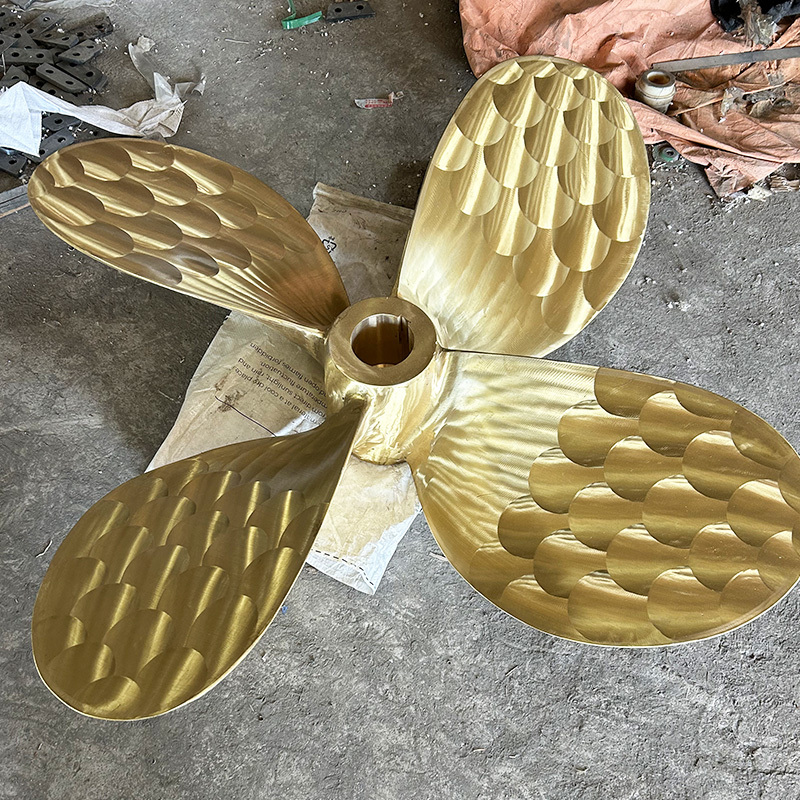Unlocking the Benefits of Using Copper Propellers in Marine Applications
Release Time:
Aug 13,2025
Unlocking the Benefits of Using Copper Propellers in Marine Applications Table of Contents Introduction to Copper Propellers What Are Copper Propellers? Advantages of Copper Propellers Enhanced Durability and Longevity Corrosion Resistance Improved Efficiency and Performance Environmental Impact Applications in the
Unlocking the Benefits of Using Copper Propellers in Marine Applications
Table of Contents
- Introduction to Copper Propellers
- What Are Copper Propellers?
- Advantages of Copper Propellers
- Enhanced Durability and Longevity
- Corrosion Resistance
- Improved Efficiency and Performance
- Environmental Impact
- Applications in the Marine Industry
- Comparison with Other Propeller Materials
- Maintenance and Care for Copper Propellers
- Economic Considerations of Copper Propellers
- Future Innovations in Copper Propeller Technology
- Conclusion
- FAQs
Introduction to Copper Propellers
In the world of marine engineering, propellers play a crucial role in ensuring the efficient and effective movement of vessels. Among the various materials used for propeller construction, **copper** has emerged as a prominent choice due to its numerous advantages. This article delves into the benefits of using copper propellers in marine applications, highlighting their durability, efficiency, and overall contribution to improved performance in maritime operations.
What Are Copper Propellers?
Copper propellers are marine propellers made from a copper alloy, often combined with other metals to enhance their properties. These propellers are widely recognized for their strength, resilience, and ability to withstand harsh marine environments. The unique characteristics of copper make it an ideal material for propellers that require both **strength** and **corrosion resistance**.
Advantages of Copper Propellers
Copper propellers offer several advantages that set them apart from propellers made from other materials. Below, we explore these benefits in detail.
Enhanced Durability and Longevity
One of the most significant advantages of copper propellers is their **durability**. Unlike traditional aluminum or plastic propellers, copper propellers are less susceptible to wear and tear. The inherent strength of copper allows these propellers to withstand the rigors of marine operations without bending or breaking easily. This durability translates into a longer lifespan, making copper propellers a cost-effective investment for vessel operators.
Corrosion Resistance
Marine environments are notoriously harsh, with saltwater and other corrosive elements posing a threat to many types of propellers. Copper propellers exhibit excellent **corrosion resistance**, thanks to their unique alloy composition. This resistance not only helps maintain the structural integrity of the propeller but also reduces the frequency and costs associated with maintenance and replacements. As a result, operators can expect a longer service life and reduced downtime with copper propellers.
Improved Efficiency and Performance
Efficiency is paramount in marine operations, where fuel consumption can significantly impact overall operational costs. Copper propellers are designed to optimize fluid dynamics, which enhances the **propeller's efficiency** in converting engine power into thrust. The streamlined design of copper propellers minimizes cavitation and drag, resulting in improved speed and maneuverability. This efficiency not only boosts vessel performance but also contributes to fuel savings, making copper propellers an attractive option for environmentally conscious operators.
Environmental Impact
As the marine industry moves towards sustainable practices, the materials used in vessel construction are under scrutiny. Copper propellers are not only efficient but also eco-friendly. Their durability reduces the need for frequent replacements, cutting down on waste and minimizing the environmental footprint. Additionally, copper's recyclability ensures that even at the end of their life cycle, copper propellers can be repurposed, further mitigating their environmental impact.
Applications in the Marine Industry
Copper propellers are versatile and suitable for a wide range of marine applications. They are commonly found in:
- **Commercial Fishing Vessels**: These propellers provide the durability and efficiency needed for long hours at sea.
- **Yachts and Recreational Boats**: The performance enhancement offered by copper propellers appeals to leisure boaters seeking optimal speed and handling.
- **Cargo Ships**: The cost-effective longevity of copper propellers plays a crucial role in minimizing operational disruptions for cargo transport.
- **Military Vessels**: The superior strength and corrosion resistance of copper make it an ideal choice for defense applications where reliability is paramount.
Comparison with Other Propeller Materials
While copper propellers boast numerous advantages, it's essential to compare them with other commonly used materials, such as aluminum and stainless steel.
- **Aluminum Propellers**: Although lightweight and relatively inexpensive, aluminum propellers are prone to damage and corrosion. They require more frequent replacements and maintenance, making them less cost-effective in the long run.
- **Stainless Steel Propellers**: Stainless steel propellers offer excellent strength and resistance to corrosion but come at a higher cost. Copper propellers provide a balanced alternative, combining durability with a more affordable price point.
Overall, copper propellers stand out due to their unique combination of durability, efficiency, and cost-effectiveness.
Maintenance and Care for Copper Propellers
To maximize the lifespan and performance of copper propellers, proper maintenance is essential. Here are some tips for caring for copper propellers:
1. **Regular Inspections**: Schedule routine inspections to identify any potential issues, such as wear or damage.
2. **Cleaning**: Remove marine growth and debris from the propeller surface after each use to prevent corrosion.
3. **Protective Coatings**: Consider applying protective coatings specifically designed for copper to enhance corrosion resistance.
4. **Proper Storage**: When not in use, store the vessel in a dry, cool place to minimize exposure to moisture and corrosive elements.
By following these maintenance guidelines, operators can ensure their copper propellers perform optimally for years to come.
Economic Considerations of Copper Propellers
Investing in copper propellers can yield significant economic benefits over time. Although the initial cost may be higher than that of aluminum propellers, the long-term savings associated with reduced maintenance, longevity, and improved fuel efficiency make copper an economically sound choice. Furthermore, as fuel prices continue to rise, the efficiency of copper propellers becomes even more valuable, allowing operators to maintain profitability in a competitive market.
Future Innovations in Copper Propeller Technology
As technology advances, the marine industry is poised for exciting developments in copper propeller design. Future innovations may include:
- **Enhanced Alloy Formulations**: Researchers are exploring new alloy combinations to further improve the properties of copper propellers, increasing their strength and corrosion resistance.
- **Advanced Manufacturing Techniques**: Innovations in manufacturing, such as 3D printing, could allow for more complex designs that optimize performance while maintaining durability.
- **Smart Propeller Technology**: Integrating sensors and monitoring systems into copper propellers could provide real-time data on performance metrics, enabling operators to make informed decisions about maintenance and efficiency improvements.
These advancements will ensure that copper propellers remain at the forefront of marine technology, delivering unmatched benefits to operators.
Conclusion
In summary, the advantages of using copper propellers in marine applications are significant and multifaceted. From enhanced durability and corrosion resistance to improved efficiency and lower environmental impact, copper propellers provide a compelling option for a variety of marine vessels. As the industry continues to evolve, embracing copper propellers not only offers immediate benefits but also positions operators for future innovations and advancements in marine technology.
FAQs
1. Are copper propellers suitable for all types of marine vessels?
Yes, copper propellers are versatile and can be used in various marine applications, including commercial fishing vessels, yachts, cargo ships, and military vessels.
2. How do copper propellers compare to aluminum propellers in terms of cost?
While copper propellers may have a higher initial cost, their durability and efficiency lead to long-term savings through reduced maintenance and fuel consumption.
3. What maintenance is required for copper propellers?
Regular inspections, cleaning, protective coatings, and proper storage are recommended to ensure optimal performance and longevity of copper propellers.
4. Can copper propellers be recycled?
Yes, copper is highly recyclable, which contributes to its eco-friendliness and makes it a sustainable choice for marine applications.
5. What future advancements can we expect in copper propeller technology?
Future innovations may include enhanced alloy formulations, advanced manufacturing techniques, and smart technology integration for improved performance and monitoring.
Keywords:





